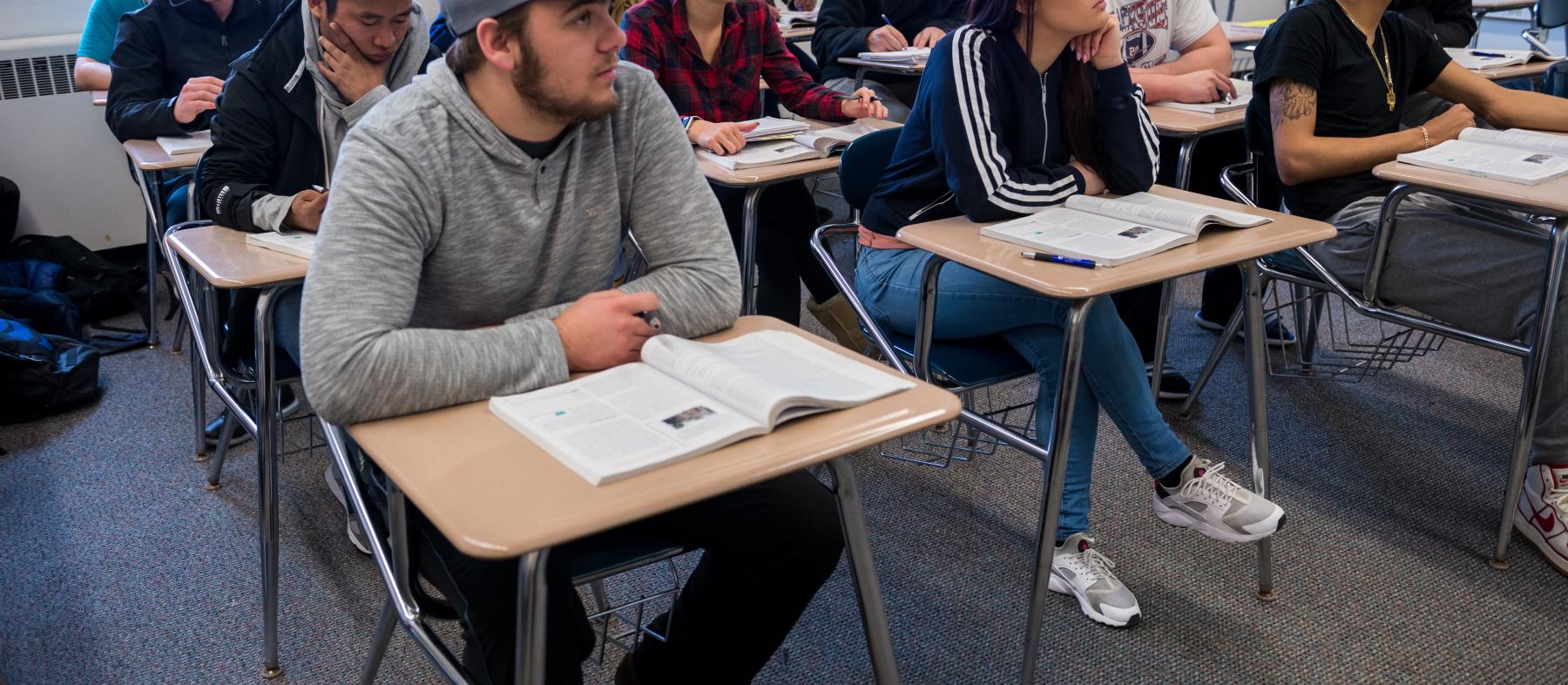Program Goals:
The QCC Liberal Arts - Sociology Option associate degree program includes the following program goals:
- Provide a curriculum with an emphasis on courses that students will need to seamlessly transfer to a bachelor’s degree program in sociology or a pre-professional field.
- Provide a well-rounded foundational education in the liberal arts disciplines, defined as fine arts, humanities, mathematics, natural sciences, and social and behavioral sciences.
- Foster and hone high-level communication and critical reasoning skills, vital for success in a bachelor’s degree program or professional career.
- Develop critical thinking and/or observation skills, and apply them to the analysis of problems or questions related to society.
- Enhance students’ understanding and appreciation of a broad range of issues and ideas in both western and non-western societies and cultures through an intercultural and interdisciplinary approach to teaching.
- Instill the life-long orientation to broad-based intercultural and interdisciplinary learning required for sustained success in the globalized, knowledge-driven, and increasingly diverse society and economy of the 21st century.
Student Learning Outcomes:
Upon completion of the program, graduates will be able to:
- Utilize the broad-based liberal arts curriculum in the fine arts, humanities, mathematics, natural sciences, and social and behavioral sciences to develop a sociological perspective on the world.
- Identify, differentiate among, and apply a variety of sociological theories.
- Identify, compare and contrast, and apply methods of sociological research.
- Demonstrate knowledge and comprehension of the sociocultural processes and structures that shape social interaction.
- Contextualize themselves and their social interactions as socially constructed and subject to change over time.
- Identify key patterns of social stratification and inequality, their operation and consequences.
- Demonstrate the capacity to make well-reasoned ethical and aesthetic judgments, by calling upon the discursive, expressive, and interpretative skills honed and developed in the humanities and fine arts.
- Apply the concepts and methods of mathematics to solve problems, and demonstrate quantitative reasoning in a variety of disciplines.
- Demonstrate knowledge of the scientific process and basic scientific principles, and apply the scientific method to complex problems in the natural sciences.
- Demonstrate understanding of the development, diversity, and complexity of human behavior in society and culture, and the methodologies to do so in the social and behavioral sciences.
- Demonstrate high-level communication skills (verbal, written, graphic, and numerical) across the full span of the liberal arts disciplines.
- Apply critical reasoning skills, drawing upon interdisciplinary approaches, to analyze and solve complex problems.
- Demonstrate the ability to use interlibrary catalog/loan systems and electronic databases and to distinguish between reliable and non-reliable sources, whether print, cinematic, televisual, or web.
- Demonstrate the multiple perspectives that derive from knowledge and awareness of cultures and cultural practices (one’s own and others’).
Admissions Process:
Admissions inquiries should be directed to admissions@qcc.mass.edu. Prospective students may apply to the program of their choice by following the enrollment steps at www.QCC.edu/enrollment-steps.
Program Admissions Requirements:
Students should note that some first semester courses carry minimum prerequisites. Refer to the program grid.
- High School Diploma or GED/HiSET.
CORI, SORI, Finger Printing & Drug Testing:
Criminal Offender Record Information (CORI) and Sex Offender Registry Information (SORI) checks are not required. Fingerprinting and drug testing are not required.
Additional Cost:
See the Program Fees page.
Technical Performance Standards:
See the Technical Performance Standards page. (Note: Not all programs have technical performance standards).
Credit for Prior Learning:
Credit for Prior Learning (CPL) allows students to use skills they already have towards a college degree or certificate. Work, life, volunteer and military experience may be translated into credit, allowing students to take fewer classes and earn their degree faster. CPL eliminates redundancies for students who have already earned credentials or mastered skills required for their program of study. Email experience@qcc.mass.edu for more information and eligibility.
Career Outlook:
Please consult the Massachusetts Career Information System at https://masscis.intocareers.org/ or the Occupational Outlook Handbook at www.bls.gov/ooh/ for specific occupational information. The CIP code for this program is 45.1101.
Transfer Articulations & Opportunities:
Prospective students may learn more about transfer articulation agreements at www.QCC.edu/agreements. More information regarding transfer opportunities is available at www.QCC.edu/transfer.

